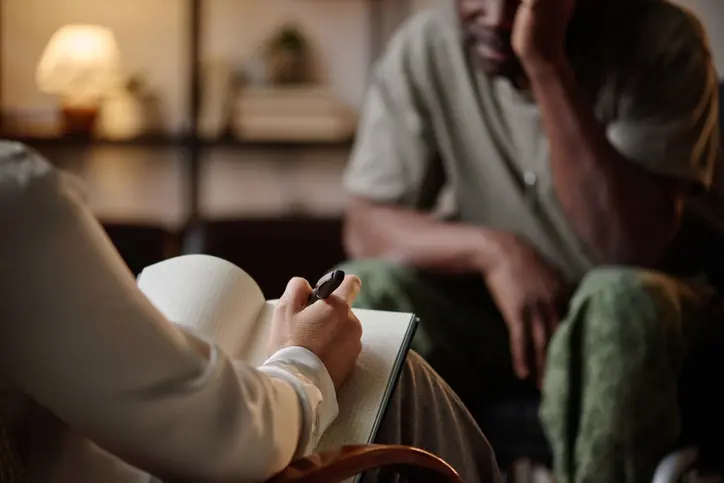Tactical Recovery: Helping Vets Heal
Veterans, having endured the rigors and traumas of combat, often face unique challenges upon returning to civilian life. They may struggle with any number of issues, including substance use disorder (SUD), alcohol use disorder (AUD), mental health illnesses, traumatic brain injuries, and post-traumatic stress disorder (PTSD). Fortunately, the Tactical Recovery program at Seabrook addresses these intertwined issues with compassion and expertise. This serves not only to honor their sacrifices but also cultivate a healthier, more inclusive community for all.
Troubles of a Unique Population
Individuals who face danger and emergency situations do so out of duty and dedication. However, it takes extreme perseverance—often at the sacrifice of emotional, mental, and physical health. While there’s more awareness among the general medical community about providing better services for Veterans, active-duty and reserve service members, and first responders, customized treatment initiatives designed specifically for this population address more acute concerns and produce stronger results.
There are many reasons why a more tailored approach is necessary. Here are some startling facts.
- PTSD and addiction is a concern among individuals who serve. The United States Department of Veterans Affairs (VA) indicates that 7 out of every 10 Veterans will have PTSD at some point in their lives. More specifically, “more than 2 of 10 Veterans with PTSD also have SUD, and almost 1 out of every 3 Veterans seeking treatment for SUD also has PTSD.”
- Additionally, Kaiser Permanente released findings in 2020 that state “depression and PTSD are up to 5 times more common in first responders…but 57 percent fear negative repercussions for seeking help, and 40 percent fear being demoted or fired.”
- Studies on the mental health issues of current and former military personnel point to the prevailing threat of suicide, as “Veteran suicide rates were 1.5 times higher than those of non-Veterans. Research has shown that Veterans are at significantly increased risk of suicide during their first year after leaving the military service.” The concern was so great that in 2018, “a Presidential Executive Order was signed to improve suicide prevention services for Veterans during their transition to civilian life.”
- In 2022, the New Lines Institute released findings regarding hyper masculinity in military and law enforcement, indicating that, “the heightened pressure to appear unaffected by traumatic events and limited access to critical health services such as psychologists and counselors can result in a lack of help-seeking behavior and an increased likelihood to perpetrate violence, particularly for men.”
- The National Institute on Drug Abuse states that “zero-tolerance policies, lack of confidentiality, and mandatory random drug testing that might deter drug use can also add to stigma, and could discourage many who need treatment from seeking it.” Additionally, “a common belief that requesting help for SUD, AUD, or co-occurring mental health issues would ‘negatively affect their military career’.”
Asking for help isn’t a weakness. At some point, courage takes the form of acknowledging there’s a problem. Using a warrior’s spirit to face it head-on and take the necessary steps for better health creates positive change.
How Seabrook’s Tactical Recovery Helps Vets Heal
We’re proud to collaborate on the Tactical Recovery initiative with partners such as the VA’s Community Care Network and the nonprofit organization PsychArmor as a Veteran-Ready program. This means Seabrook’s board-certified medical team has military cultural competency education and understands the particular challenges and needs of servicepeople, first responders, and emergency personnel. In many cases, individuals in this population don’t receive an appropriate level of treatment from people who understand the full impact of military service—but we do.
Our confidential program provides evidence-based applications for detoxification, residential treatment, and mental health services. There are population-specific groups twice a week during residential treatment and a trauma-informed care approach using a Seeking Safety curriculum within a service-oriented culture. Here are other features and benefits of Tactical Recovery:
- 24-hour nursing and psychiatric care
- Focused diagnosis and treatment for co-occurring conditions
- Treatment options that include:
- 12-Step curriculum
- Cognitive behavioral therapy
- Dialectical behavior therapy
- Motivational interviewing
- Relapse prevention
- SMART Recovery
- Holistic health opportunities, including meditation and mindfulness practice, spiritual growth, art therapy, yoga, and nutrition
- Various wellness services
- Family education
- Collaborative discharge planning with the VA, military command, or municipal department
- Access to the Tactical Recovery Alumni App to stay connected and supported after discharge
The U.S. Chamber of Commerce Foundation recently recognized the Tactical Recovery program as the winner of the 23rd Annual Citizens Awards Best Health and Wellness Program.
Seabrook: Proud to Serve Those Who Served
Seabrook has four award-winning addiction treatment centers in New Jersey ready to help you. If this is the comprehensive care you’ve searched for but have yet to find, talk to a member of our admissions team today.
If you or a loved one needs immediate assistance, try one of the following free, confidential hotlines.
- First Responder Hopeline
Call 1-866-4FL-HERO
A specialized lifeline available to all first responders, including emergency medical technicians, firefighters, and police officers.
A non-medical service that provides resources for military members and their families regarding stress reduction, relationship building, and other vital support.
Call 800-799-7233 or use the online chat. Open to everyone, this organization also provides additional support for children and members of the LGBTQAI+2 community.
Call 877-717-7873 for the trauma hotline, and use the website to find a support group near you.
Visit this site to use the 24/7 live chat feature and discover resources for active/retired military members and their families.
Dial 988 then press 1. This therapeutic resource is open to all current and former service people and family members and friends of military personnel.




